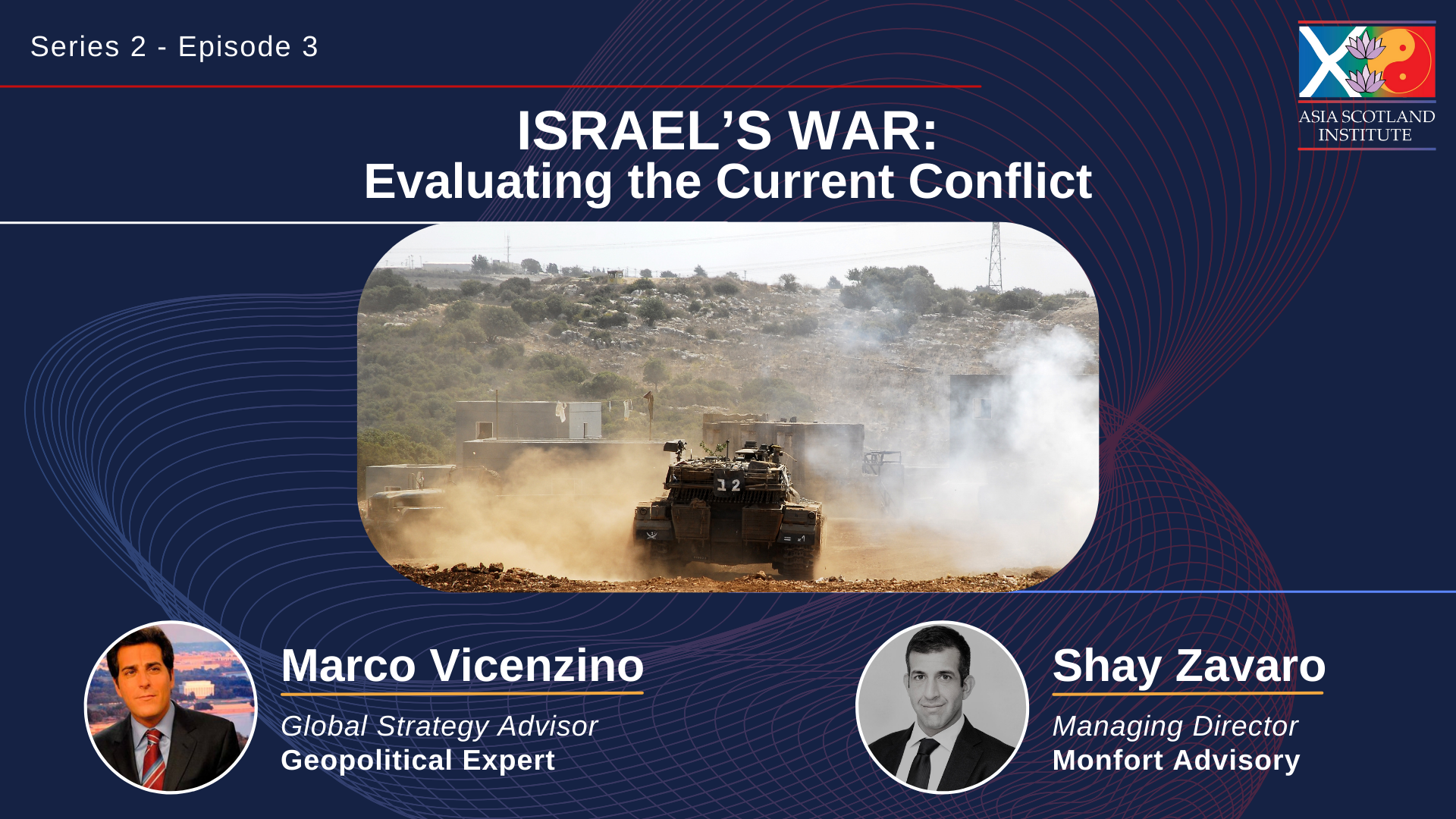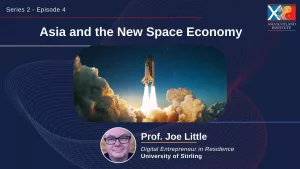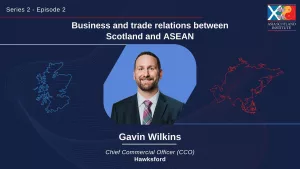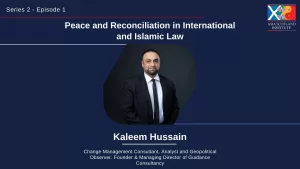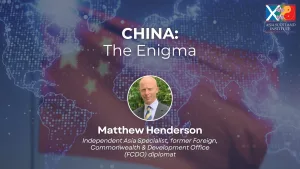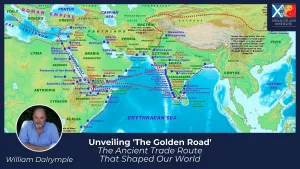Podcast Description
On 7th October 2023, Palestine militant group Hamas launched an unexpected attack on Israel, killing dozens and taking hostages.
In co-ordination with The Defence and Security Forum, the Asia Scotland Institute has arranged this important and very timely podcast to provide an analysis of the current situation, how the war is developing and possible future developments in Israel.
We are joined by Marco Vicenzino, a regular commentator on global affairs as a geopolitical expert, and Shay Zavaro, Managing Director of Monfort Advisory, a leading strategic advisory firm based in Israel, to ask them their views on the current conflict.
Discussion topics:
- Current Situation in Israel
- Hamas’ Strategy and their hostages
- Regional Implications and Iran’s Role
- Russia’s Role and Impact
- Hezbollah’s Role and Potential Domestic Impact
- Netanyahu’s Political Future
Transcript
00:00:00:18 – 00:00:44:13
Andrew Brotherston
Good afternoon and welcome back to the Asia Scotland Institute’s podcast in coordination with the Defence and Security Forum. The Institute has arranged this important and very timely event to provide an analysis of the current situation and possible future developments in Israel. Today we are joined by Shay Zavaro, who is the Managing Director of Monfort Advisory, a leading strategic advisory firm based in Israel, to ask him for his views on what’s going on at the moment.
Also with us is Marco Vicenzino, who is a member of the Asia Scotland Institute’s International Advisory Council and a regular commentator on global affairs as a geopolitical expert. I’ll pass over to Roddy Gow, Chairman and Founder of the Asia Scotland Institute, to open up the discussion.
00:00:44:13 – 00:01:02:12
Roddy Gow
So Shay could start by asking you to very kindly give us your comments on the current situation, how it is developing and how you see it.
Is that happening in the future? And then, Marco, I’ll switch over to you for a response and observations. So thank you.
00:01:02:14 – 00:06:25:04
Shay Zavaro
Thank you very much. It’s great to be here. Thanks for giving me this platform to tell you how things started. What was the emotions? How we kind of get a grip together here in Israel and now what is the situation at the moment really? So basically, Saturday morning started with a complete chaos. Israel was penetrated in South most of the settlements around Gaza area with a complete vagueness around what’s going on, both from the public and I believe also from from the government side and more importantly, the IDF side.
I think the only the only people who were visible to the situation where the actual media and also the people on the ground. We have experienced such an attack that we’ve never seen before and the level of cruelty and that kind of transforms everything or all the perception at least Israel had on Hamas in the last ten years since.
I would say yesterday there was a bit more visibility of the level of disaster of what has happened. And we understand that from the beginning of the operation of Hamas, three military bases were captured and then basically this together with a bit of, I would say, forces going to secure the West Bank mainly. And the jaws of film were staying there.
The three bases were neutralized, but Hamas and then the rest of the militants component militants fell into several towns and completely occupied them. This basically led to what we see at the moment. Okay. We see the Israeli government completely remove all the glass. It began scaling up. There was a bit of criticism from some say why we are going against the south, against the Hamas.
However, you could see it really scaling up today. Now at the moment are still minor penetrations. Okay. In the towns next to Gaza, however, there are no civilians there at the moment. A, We are seeing a very forceful attacks on the military air force in Gaza hitting over 1500 targets already, I think going back to 2000.
There is a great I would say I’ve never seen such a global not the global, but international support in the IDF operation. The Israeli government is willing to take this gap in time and do whatever it can in order as they set it. The government set the target to remove Hamas from power. Have no such organisation at the moment, and this is the strategy of the Israeli government at the moment.
A lot of fake news hitting the social networks, which has an impact on creating a bit more chaos and the communication between the citizens, the citizens and the government. A. Having said that, I have to say, although with a bit more clarity now, the atmosphere is the atmosphere of chaos in the House. To say you asked from the beginning what is the feelings of how this conflict would reflect on the region.
And I have to say that the first sentence commentators have have the politicians have a where the operation is not how many casualties we have or what is going to happen in Gaza. The eyes went towards the of making sure that we are not getting hit and by Hezbollah before there is a widespread fall from there. And obviously we are very hopeful that the Hezbollah would not enter into this situation.
A and I believe that Hezbollah at the moment lost is the surprise element, and therefore it is quite unlikely for it to join at this stage. We will see some attacks in order to divert some of the attention from Gaza and to, as we say, not the Israeli Defence Forces. A But I don’t foresee more than that.
00:06:25:06 – 00:06:42:02
Roddy Gow
Thank you, Shay. That’s very helpful. And Marco, you’ve been following these events in the normal course of your work. You’ve heard what Shay has said. And of course, media coverage of this is extensive, which I’ve been watching your comments, Marco.
00:06:42:04 – 00:11:01:05
Marco Vicenzino
Yeah, I mean, you get it. Look at it from an external perspective. Looking in from the outside, in looking at it from the outside in. Obviously there was massive surprise what happened last Saturday morning. Obviously, you know, Israeli security forces, Israeli intelligence, the entire so-called military security establishment had an aura of invincibility outside of Israel. And to see what happened and see what it what unfolded on Saturday morning, to a certain extent pierces that aura of invincibility.
Well, obviously, a cornerstone of his security and defense policy has been deterrence. And looking at an event of what happened last Saturday definitely does damage the credibility of that determines and in order to restore that, obviously, they need to take make a very firm response. So although it was pierced, it’s not that it’s lost completely, but it’s just going to take time in terms of restoring it.
So that’s I think that’s one sort of observation from the outside. Another one is in terms of the diplomatic process, obviously in the last year or two years, we have seen a process of normalization between Israel and some certain select Arab states. Under the Trump administration, you had the Abraham Accords, which was signing of recognition between Israel, Bahrain and the United Arab Emirates.
You also had the signing with Morocco during that time. And in recent weeks and months, the Biden administration is working very hard to have the normalization between Saudi Arabia and Israel. And obviously the United States is a key part of that, because as part of that, the United States will be making, you know, making concessions also to Saudi in terms of greater defense.
Wouldn’t be an Article five treaty, but something as close as you can get to it. More like, say, for example, what we have with the Philippines. So that would be part of the process. And, you know, obviously Saudi Arabia representing the holiest sites in Islam or in Saudi for Israel, that would be a very, you know, from a credibility perspective, from a diplomatic perspective, a huge injection for its diplomatic process worldwide.
So I think on that front, one of the objectives of several objectives of Hamas, and this was to try to undermine that entire process of diplomatic normalization between Israel and its out and its neighbors, its Arab neighbors in the region. So, so far, I think what’s happening now, that process is on hold. Obviously, much will depend on how long the crisis last, the magnitude and the scope of the current nature of the current operations in Gaza.
There’s a lot of questions to be asked. And based upon those answers, there will be a lot more clarity in terms of things move on a diplomatic process. In terms of the you look at Hezbollah was mentioned. Yes. I mean, if this if this the operation can be, as I want to say, quick, because nothing is quick but as effective and as as that can generate results, I think the better it is, the longer it drags on, the more you create, the more you increase the risks of some some form of expansion of a more regional conflict just beyond Gaza.
So I think time is of the essence on this one. But in terms of support, external support, if enormous international support, diplomatic support that Israel’s been getting on this and then plus from Israel’s chief ally, the United States, the United States also just mobilizing an aircraft carrier group to the Eastern Mediterranean. The Gerald Ford, one of the latest aircraft carriers of the US Navy.
So I think in terms if there were to be something whereby there would be an expanded regional war, there would be a role to be determined, but there would be some form of role for the United States. But already the the new weapons, armaments, support material support is already beginning to flow to Israel in case this winds up being a dragged on.
If this winds up being dragged on in terms obviously there’ll be some support in terms of material support for weaponry. And I think the United States has made quite clear that that support will be coming as needed.
00:11:01:07 – 00:11:16:00
Roddy Gow
Thank you very much for that show you’ve covered. Marco said, your observations on that. And then I’d like your viewers to see the psychological impact of the taking of these hostages and how that may play out.
00:11:16:02 – 00:15:53:24
Shay Zavaro
First of all, I can also add to what Marco said and give the film of you. Marco is absolutely correct about the feeling of isolation from the Palestinian side, because for the first time in ages, Israel is winning on the diplomatic side. And how does it when it gets closer to Saudi Arabia, the Abraham Accords and Bahrain? Let’s not let us not forget the strategic asset of the gas.
Do forget the brings it closer to Jordan and Egypt. And this probably leaves out not only the Hamas, not only Hezbollah, but even higher than that leaves out Iran. And Iran is the major foes. And let’s not forget that behind the border and come out now, I can tell you that for a long time now, Iran is really pushing the Hamas and Hezbollah to make an action against Israel.
And on our side, on the Israeli side, we did not view Hamas as this time. As such fundamentalist religious extreme organisation as it is we do now. And the explanation for that is that in the last couple of years, Hamas has been under the radar of some sort of the partner we can speak with. Okay. In terms of the employee, we always said that Israel would never want to speak with Hamas, but most of the poverty in Gaza, whether we at employees, whether we want to bring energy and etc., it’s with Hamas and slowly Netanyahu started the Israeli government started to feel safe because there were talks of increasing.
Now the entrance of 20,000 employees in Israel and a maybe building a solar a solar panels outside of Gaza to enable electricity. So the future is still the big bright. But I think Israel has made the massive miscalculation. And the miscalculation is thinking in the last five, six years we were not thinking about the essence and the agenda and the books of Hamas of the 87 that a Palestine cannot exist alone.
Usually this together with the geopolitical situation Malcolm described as push Hamas to conduct such a brutal act in order to save those blocs in the Middle East and bringing Israel backwards, and which I think we tend to think for the short term at the moment is quite succeed in attack. Now, as for the captive, the question of the captive for the first time in a long, long time, the first time I would say I can hear that the cop did not play a major role in the decision making on how how the military operation should go in Gaza.
And this is a change because part of the strategy of Hamas would say we are going to captive is not as many hostages as we can bring them in. And by that balance, Israel responds because we know Israel’s sensitivity towards its hostages. Now, one thing I would say, the higher the number of hostages, the less of the value goes, the less of the value of it.
And Israel is currently playing it as a tool. And part of the strategy of separating the government cabinet would say, we first finish the war in Gaza, then we are going to talk about the hostages. So there is no there is no balance or calculation of how how we go with Gaza in consideration to the captives.
00:15:54:01 – 00:15:57:17
Roddy Gow
Marco, your thoughts.
00:15:57:19 – 00:18:24:05
Marco Vicenzino
Yeah, I mean, obviously, I mean, they’ve taken advantage of the fact that, you know, once again, you talk about that sensitivity to human life. I mean, just in 2006, for one one Israeli soldier, they exchanged 1000 Palestinian prisoners for one Israeli soldier. Obviously, the different outlooks on the value of life and were taking, though the numbers are estimated to last I heard was about 150 captives.
And these are not soldiers. These are some soldiers, many women, children, elderly. These are individuals, just members of society. So in that sense, they they from their perspective, in their calculation, they think they could slow down the the attack on Gaza, particularly a ground assault. But I think at this point, this and I agree with I agree with that my colleague here is the fact is that you’re going to you’re not going to link them together.
Hamas is operating under the calculation that they going to be linked together. They think they can slow down the operation based upon the fact that they’ll stop killing the hostages. But I think at this point, the situation so, so urgent that they’re going to have to go forward with the ground operation as soon as possible. Obviously going to be mobilizing 300,000 reservists.
That may take a bit of time. But I think overall things will move quite quickly on that front. Going back just to the point on the diplomatic front, obviously the derailing that US-Saudi the US process. You can call it an alignment was something that was key to Iran because the last thing that Iran wants to see in recent years, Iran is had a an edge, a superior edge in the region with this alliance, its groups that it operates within through Iraq, Syria, Lebanon, Yemen.
And that edge is under threat. Should that agreement be signed between Saudi, Israel and the United States, it will be a front upon which you can stop the challenge directly a more effectively Iranian influence in the region, hence an attack like this in trying to sabotage that entire process of normalisation between Israel and its neighbours is a key part of the Iranian strategy in the region.
It’s trying to hold that upper hand and an alliance like that of the three countries, not just described, would be a serious threat in terms of its ability to its effectiveness in the region strategically.
00:18:24:07 – 00:18:44:10
Roddy Gow
Can I ask both of you another question, which is what is the role of Russia, do you think, in this? Russia presumably, which in some ways is delighted that attention has shifted away from Ukraine, where of course there’s still a lot of violence and aggression going on? Does Russia have a hand in this game?
00:18:44:12 – 00:20:28:20
Shay Zavaro
Well, they heard a lot of assumptions from the most ludicrous one, which is Wagner is involved. And more in that, I would say, until until today, Israel really did not do anything to upset Russia. In fact, Israel understands the Russian role in Israel’s security. First of all, there is a large Russian community here and we cannot ignore that.
Secondly, the Russians well and still is in Syria, and there is an air force coordination all the time regarding Israeli attacks in Syria. Secondly, although Israel was asked over and over again in the last year for military assistance in Ukraine, we could see rising just a bit. Recently, Israel wanted to stay in the middle because he understands that the Russians have sympathy to Lebanon, Syria and also has an internal hold in Israel, both in terms of the money and a in the community.
Whether I am certain to say it often is push Iran A to force Hamas into the action. I am not sure whether it’s say the neutral, etc. that don’t do it, I’m not sure about that either.
00:20:28:22 – 00:20:53:01
Roddy Gow
Now it’s too early to tell, isn’t it really, I suspect. And and in terms of Iranian involvement or noninvolvement and the next military man, I would say to that I was very surprised that the organisation of Hamas and how they made the attack as they did, and then to pick out what Marco said, it was as if the IDF were asleep at the switch and they really should have been much better prepared. This was something that was has been seen coming for ages. Just going back to Iran, can you comment on that, Shay?
00:21:03:22 – 00:21:08:19
Shay Zavaro
Can you repeat the question?
00:21:08:20 – 00:21:16:10
Roddy Gow
The Iranian involvement, it’s not being nobody said, including the United States, that there’s any evidence yet. But I wonder what the view is of your countrymen.
00:21:16:12 – 00:22:59:18
Shay Zavaro
Absolutely. I think Iranians the Iranians are being brought up in every discussion. Okay. Both the political discussion, the cabinet, it is obvious who is standing behind it, whether there is an evidence, a about money transfers, etc.. It is or it is all over. Quite true about it. I think what is interesting, Audie, to really investigate is what is the Iranian involvement in the beginning of the attack and cutting the intelligence lines and the video lines on defence.
Yeah, And this is something that we we all should ask ourselves because the Iranian interest is obvious. And I think it also is a separate matter. And it’s important for me to say to Hamas, it has to be is its action has to be something broader, because it could not be a unilateral action by itself because Hamas destroyed its reputation, its a legitimacy by all means, by comparing itself to the Islamic State and a has had to be taken to be part of a broader plan.
Although a grand plan of the ideal, the Iranian origins of Hezbollah. And this is what it why Israel is so concerned at the moment.
00:22:59:20 – 00:23:01:18
Roddy Gow
Thank you, Marco.
00:23:01:20 – 00:26:48:03
Marco Vicenzino
Yeah, I mean, in terms of involvement, I mean, listen, the level of sophistication in this attack, definitely it was outside help. You know, you talk about primarily Iranian sponsorship and definitely Iran together with Hezbollah. I’d put them both together, both involved in this. And you watch and you see it’s the level of coordination. It’s just it’s too much.
It will be too much just for and it probably it took several months, if not at least a year to prepare something of this magnitude. And definitely outside help, obviously, one would want to try to get evidence to be able to support that. But I think it’s important from a strategic perspective, if you are a security official, if you’re a policymaker or you’re someone who is making decisions, you have to operate upon that premise.
I don’t think there’s any way else to You can’t leave questions to it in terms of the public debate, media, public opinion. Yes, you want to try to get evidence, but in terms of operating from a day to day perspective in the security realm, it’s important to operate upon that premise beforehand. That was clear that of the groups and in Gaza operating Palestinian Islamic Jihad project, they had direct links with with Iran.
I think there was no surprise in that. They were quite open about that. And the question always was what is Hamas? So this was just not Hamas. Hamas was also it was also Islamic Jihad. Palestinian was involved with Hamas on this. So you already have another group that has direct access to the Iranians on this one. So obviously, Hamas is the major face on this.
But there are differences. I mean, not I wouldn’t say so much ideological, but more on personalities between Jay and Hamas. But they participated in this together, sort of this you can call that jihadist front with the support of Iran, which is a bit of a you know, there’s an inconsistent C in this one being a Shiite power together.
You know, obviously they’re enemies and enemies with the with the with the Sunni fundamentalists. But I think in this case, that common enemy brought them together, i.e. their enemy being Israel and the broader West at large. And there’s more of a you call it an operation of convenience between the two, between PJ and Hamas. But I think that once and this there was an overreach, they overreached big time.
And the thing is that even for Hezbollah in Lebanon, you have many ordinary Lebanese citizens, whether they’re Christian, Lebanese, Sunni, Lebanese, even members of the within the Shiite and other groups and other minorities. The situation in Lebanon is so bad economically, they are completely on their knees economically. The last thing they want on their hands is a war with Israel or bombings in Beirut or other places.
So I think even for Hezbollah, Hezbollah may try down to somewhat playing quite downplay it inside Lebanon, because if there is an expansion of this war and the missiles start going between Israel and Lebanon, that economic situation, which is already terrible for the ordinary citizen, will get much worse. And sort of a brewing of animosity towards Hezbollah at the grassroots level amongst ordinary noncombatants, civilians, has increased over the years, particularly as they resent the fact that they are they are going through such a difficult situation economically.
And many within within Hezbollah and their community actually are not suffering in the same way that other Lebanese are suffering. So if this war was to expand, you only see a turn of public opinion against Hezbollah domestically in Lebanon and in other parts of the region. Also, people in the region, generally speaking, do not want a war.
00:26:48:05 – 00:27:00:11
Roddy Gow
Thank you, Marco. We’re going to sort of start winding down. So I wonder if I could ask you almost that the conclusion of your thoughts and how is how you see this ending?
00:27:00:13 – 00:30:17:05
Shay Zavaro
From my conclusion, a defeat would be a bit different. At the moment, there is a complete mistrust between the Israeli public and the government, and this is a very awkward situation to have to walk in now. Secondly, there is a complete disorganisation within who is doing what not in terms of the fighting, but logistically and by that, Israeli public really getting behind the IDF and assisting in building things that the government should have done.
And this criticism will come back afterwards. But it will be interesting to see how Israel runs like this. I see a couple two or three weeks more in Gaza than, as my colleagues said in the beginning of the show, to the better. However, this is not the situation. The situation is is that the Israeli government set a target to remove Hamas.
This is something that was never said in quite. We were all shocked when we heard it. Finally, they say such a thing, but let’s see how it plays in a moving Hamas football. And this army came from in its form, from arms and become engaged in dismantle this whole organization. It’s not something that can be done in one or two weeks.
It’s something that needs to be taken. The months and Israel, the last thing they want to do at the moment is go for the ground force. But they might do it if they needed to, which which means more time. Now, as I see the north, the Hezbollah, the last the last thing first of all, it’s. The last thing Lebanon wants to do is really in terms of the war with Israel, both of the economic situation and the gas operations in the in the north that’s currently starting to gain some some flesh and blood.
But I don’t think it’s benign just doing now. I think the momentum for Hezbollah to attack in Israel is gone. The method was taken by Hamas because Hezbollah was planning for years a very similar operation by the one and the same method was taken by Hamas. I think it will take some time until it supplies the IDF again.
So I certainly a few more weeks a very hard to believe that the Hamas will disappear forever. And they and I believe it will end up with a complete cease fire of very heavy losses in Gaza. A very look, a lot of time to rebuild on both sides and the and then it is very hard to tell at the moment what will be the diplomatic situation afterwards.
00:30:17:07 – 00:30:21:09
Roddy Gow
And how strong is Netanyahu at the moment?
00:30:21:11 – 00:31:37:08
Shay Zavaro
At the moment? Netanyahu, Let me put it this way. If Netanyahu was still security before and with all the social unrest we had here in Israel, having the left, the left wing camp and the right and the right wing camp will supporting the fact that they are the ones you should trust because they believe in destroying the Hamas and they are the people who believe in security and not peace.
How it all how it all looks. Right now with Netanyahu and the government at the very big sleep on Saturday morning. And we find ourselves in a scenario, in a nightmare scenario that we never forget, we will see Hamas soldiers conquering thousands in Israeli soil. And I don’t think there’s much argument to say behind that. And I think we would have to come to to give some very strong explanations afterwards.
00:31:37:10 – 00:31:44:19
Roddy Gow
Thank you, Shay. That’s very helpful and very observant of you. Marco, in concluding your thoughts.
00:31:44:21 – 00:33:08:23
Marco Vicenzino
Yes. I mean, right now there’s the argument of what happened, why it happened that when it happened, it’s a serious debate to be had. But I think for the immediate right now, there’s other things to be that are necessary to be taken care of. And you draw parallels to the 1973 war with Golda meir and what she measures needed to be taken immediately and the measures were taken immediately what seemed to be a losing situation at first, and then things turned around.
Netanyahu Obviously, in the creation of a national unity government, pushing forward with the operation, he has a very limited window of opportunity to turn things around. But even then afterwards, people will not forget the scenes that took place last Saturday morning. So I think right now, his political future is in the is hanging right now in the midst.
But he has and he has a responsibility to move forward as quickly as possible, to try to create as much national unity in light of the recent months of the division within the society. Once that that situation, hopefully it’ll stabilise soon, sooner rather than later. And then from there, we’re going to have to start you know, we have to stop taking account of actually what happened.
And history may not be that kind to him. It’s still up in the it’s up for grabs right now. Only time will tell.
00:33:09:00 – 00:33:46:02
Roddy Gow
Marco, thank you very much for those remarks and thank you. And Shay, thank you so much as well. We are uniquely fortunate to have been able to have the two of you talking together. Those who will see this recording will no doubt very much appreciate the the views that you’ve expressed and the discussion you’ve had. And on behalf of the Scotland Institute and through that extensive security forum and made your commitment that we would like to thank both of you for giving up your time to talk about this very difficult, critical situation and to say, we wish you safety and we hope that matters develop along the lines of Jerusalem.
Those this sort of aggression cannot be tolerated in a modern world, and clearly it has to be dealt with. So to both of you, thank you so much and look forward to catching up. And I hope the two of you can now connect. So now that you’ve seen each other on the screen. So thank you very much indeed.
Thank you very much


